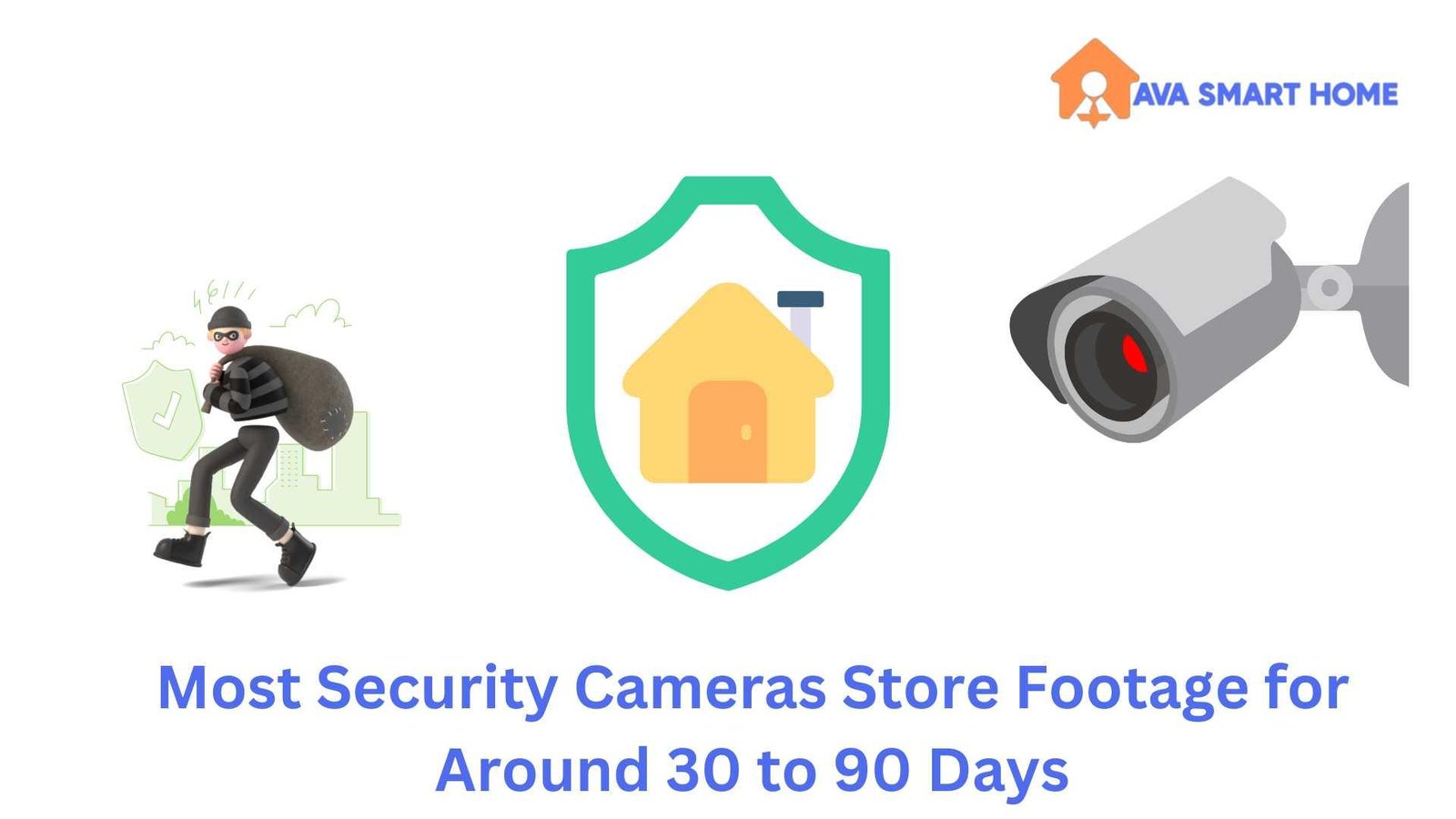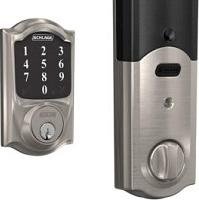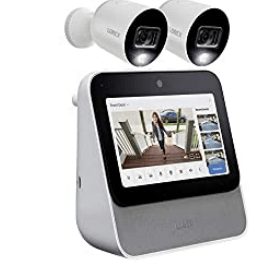The amount of time that security cameras store footage varies depending on a number of factors, such as the type of camera, the storage capacity, and the recording settings. Generally, most security cameras have a default setting that allows them to store footage for a certain period of time before overwriting it with new footage.

Table of Contents
ToggleHow Long Does the Average Security Camera Store Footage?
Security cameras have become an essential tool in safeguarding homes, businesses, and public spaces. They provide peace of mind and can serve as evidence in the event of a crime or dispute. However, one important factor to consider when using security cameras is how long they store footage.
The length of time that security cameras store footage varies depending on several factors. The type of camera, its storage capacity, and the settings configured by the user can all affect how long footage is retained. Some cameras may store footage for only a few days, while others can store it for several months. It is important to understand how long a camera stores footage to ensure that it is sufficient for the intended purpose.
Lost footage due to inadequate storage can have serious consequences, such as the inability to identify a suspect or prove innocence in a legal dispute. Therefore, it is crucial to know how long a security camera stores footage. This article will explore the factors that affect how long security cameras store footage and provide answers to the question of how long the average security camera stores footage.
Storage Capacity
The storage capacity of the system the camera is connected to is a crucial factor in determining how long footage can be stored. Most modern security camera systems use digital storage, which can range from a few gigabytes to several terabytes.
The amount of footage that can be stored depends on the storage capacity and the quality of the footage being recorded. Read also: Keeping a Watchful Eye: An In-Depth the ICSEE Wifi Smart Camera Review
Resolution and Compression
The resolution of the camera and the compression used to store the footage also play a significant role in determining how long footage can be stored. Higher-resolution cameras with larger image sizes require more storage space, and if the footage is not compressed, it can take up a lot of space quickly.
However, some cameras use advanced compression techniques that allow for more footage to be stored in less space.
Related: 5 Best CCTV Cameras with Remote Access (Review and Guide)
Frame Rate and Duration
The frame rate of the camera and the duration of the footage being recorded also affect how long footage can be stored. Cameras that record at a higher frame rate capture more footage per second, which can use up more storage space.
Additionally, cameras that record continuously will use up more storage space than those that only record when motion is detected.
Average storage time
On average, most security cameras store footage for around 30 to 90 days. However, this can vary depending on the factors listed above. Some cameras may store footage for as little as a few days, while others may be able to store footage for up to a year or more.
For example, a typical surveillance camera may be set to store footage for a period of 30 days. This means that any footage that is recorded by the camera will be stored for 30 days before it is deleted and overwritten by new footage. However, this time frame can be adjusted depending on the needs of the user.
There are some security cameras that offer the option of continuous recording, which means that the camera will record and store footage until the storage capacity is full, at which point it will start overwriting the oldest footage. This can be useful for businesses or organizations that require constant monitoring and recording of their premises.
Additionally, some security cameras offer cloud storage options, which allow footage to be stored off-site and accessed remotely. In these cases, the amount of storage available and the length of time footage is stored can vary depending on the subscription plan chosen by the user.
It’s also worth noting that the resolution and quality of the footage can impact how much storage is required, and therefore how long footage can be stored for. Higher-resolution footage will require more storage space, which means that the length of time that footage can be stored will be reduced.
Overall, the length of time that security cameras store footage can vary widely depending on a number of factors, but most cameras are capable of storing footage for at least several days, and often up to several weeks or even months.
It’s important to consider the specific needs of the user when determining how long footage should be stored and to make sure that the storage capacity of the camera or system is sufficient for their needs. Most cameras store footage for around 30 to 90 days, but this can vary depending on the camera’s specifications and settings.
Read also: Why Home Security Systems are NOT a Waste of Money – Debunking the Myth
The length of time that stores keep security footage can vary depending on a number of factors, including the type of store, the size of the store, the amount of footage recorded, and the storage capacity of the system. In this answer, we will discuss the factors that influence how long stores keep security footage.
Minimum legal requirement
In general, stores are required to keep security footage for a minimum of 30 days in case the footage is needed for legal or investigative purposes. This is often the minimum requirement set by local or state regulations.
However, some stores may choose to keep footage for longer periods of time, particularly if they have experienced theft or other criminal activity in the past.
Storage capacity
Stores may also keep footage for longer periods of time if they have the storage capacity to do so. This is often the case with larger stores that have more advanced security systems in place. In these cases, stores may keep footage for several months or even up to a year.
Data privacy laws
It’s important to note that stores must comply with data privacy laws when storing security footage. This means that they must ensure that the footage is stored securely and that it is only accessed by authorized personnel.
In addition, stores must also comply with any requests to delete or remove footage that is no longer needed.
Clear policies
Overall, it’s important for stores to have clear policies in place for the storage and management of security footage to ensure compliance with local regulations and data privacy laws. This can include policies around how long footage is stored, who has access to it, and how it is deleted or removed when no longer needed.
In conclusion, the length of time that stores keep security footage can vary depending on a number of factors, but most stores are required to keep footage for at least 30 days.
It’s important for stores to have clear policies in place for the storage and management of security footage to ensure compliance with local regulations and data privacy laws.
Related: Best 4K PTZ Security Camera: Ultimate Guide and Reviews
How Long Do Supermarkets Keep CCTV Footage?
The length of time that supermarkets keep CCTV footage can vary depending on a number of factors, including local regulations, store policies, and storage capacity. In this answer, we will discuss the factors that influence how long supermarkets keep CCTV footage.

Local Regulations
Supermarkets are subject to local regulations that dictate how much CCTV footage must be retained. In many cases, local regulations require that footage be kept for a minimum of 30 days. However, some regulations may require longer retention periods. It’s important for supermarkets to be aware of these regulations and to comply with them.
Store Policies
Supermarkets may also have their own policies for how long CCTV footage is retained. These policies may be influenced by factors such as the frequency of criminal activity in the store or the storage capacity of the CCTV system. In some cases, supermarkets may choose to keep footage for longer periods of time than required by local regulations in order to provide additional security.
Storage Capacity
The storage capacity of the CCTV system is a crucial factor in determining how long footage can be stored. Most modern CCTV systems use digital storage, which can range from a few gigabytes to several terabytes. The amount of footage that can be stored depends on the storage capacity and the quality of the footage being recorded.
Resolution and Compression
The resolution of the CCTV cameras and the compression used to store the footage also play a significant role in determining how long footage can be stored. Higher-resolution cameras with larger image sizes require more storage space, and if the footage is not compressed, it can take up a lot of space quickly. However, some CCTV systems use advanced compression techniques that allow more footage to be stored in less space.
Frame rate and duration
The frame rate of the CCTV cameras and the duration of the footage being recorded also affect how long footage can be stored. Cameras that record at a higher frame rate capture more footage per second, which can use up more storage space. Additionally, cameras that record continuously will use up more storage space than those that only record when motion is detected.
In conclusion, the length of time that supermarkets keep CCTV footage can vary depending on a number of factors, including local regulations, store policies, and storage capacity. Most regulations require footage to be kept for a minimum of 30 days, but supermarkets may choose to keep footage for longer periods of time depending on the factors listed above. It’s important for supermarkets to have clear policies in place for the storage and management of CCTV footage to ensure compliance with local regulations and to provide maximum security for their customers and employees.
How Long Do Street Cameras Keep Footage?
Street cameras, also known as traffic cameras or CCTV cameras, are used to monitor traffic and public spaces for security purposes. The length of time that street cameras keep footage can vary depending on a number of factors, including local regulations, storage capacity, and camera settings. In this answer, we will discuss the factors that influence how long street cameras keep footage.
Local regulations
Street cameras are subject to local regulations that dictate how long footage must be retained. In many cases, local regulations require that footage be kept for a minimum of 30 days. However, some regulations may require longer retention periods. It’s important for municipalities to be aware of these regulations and to comply with them.
Storage capacity
The storage capacity of the system the street camera is connected to is a crucial factor in determining how long footage can be stored. Most modern street camera systems use digital storage, which can range from a few gigabytes to several terabytes. The amount of footage that can be stored depends on the storage capacity and the quality of the footage being recorded.
Resolution and compression
The resolution of the street camera and the compression used to store the footage also play a significant role in determining how long footage can be stored. Higher-resolution cameras with larger image sizes require more storage space, and if the footage is not compressed, it can take up a lot of space quickly. However, some cameras use advanced compression techniques that allow for more footage to be stored in less space.
Frame rate and duration
The frame rate of the street camera and the duration of the footage being recorded also affect how long footage can be stored. Cameras that record at a higher frame rate capture more footage per second, which can use up more storage space. Additionally, cameras that record continuously will use up more storage space than those that only record when motion is detected.
Purpose of the footage
The purpose of the footage being recorded by the street camera also affects how long it is retained. If the footage is being used for traffic management or monitoring, it may only be kept for a few days or weeks. However, if the footage is being used for investigations or evidence purposes, it may need to be kept for longer periods of time.
In conclusion, the length of time that street cameras keep footage can vary depending on a number of factors, including local regulations, storage capacity, camera settings, and the purpose of the footage. Most regulations require the footage to be kept for a minimum of 30 days, but this can vary depending on the factors listed above.
It’s important for municipalities to have clear policies in place for the storage and management of street camera footage to ensure compliance with local regulations and to provide maximum security for the public.
How Long Do Street Cameras Keep Footage?
Street cameras, also known as traffic cameras or CCTV cameras, are used to monitor traffic and public spaces for security purposes. The length of time that street cameras keep footage can vary depending on a number of factors, including local regulations, storage capacity, and camera settings. In this answer, we will discuss the factors that influence how long street cameras keep footage.
Local regulations
Street cameras are subject to local regulations that dictate how long footage must be retained. In many cases, local regulations require that footage be kept for a minimum of 30 days. However, some regulations may require longer retention periods. It’s important for municipalities to be aware of these regulations and to comply with them.
Storage capacity
The storage capacity of the system the street camera is connected to is a crucial factor in determining how long footage can be stored. Most modern street camera systems use digital storage, which can range from a few gigabytes to several terabytes. The amount of footage that can be stored depends on the storage capacity and the quality of the footage being recorded.
Resolution and compression
The resolution of the street camera and the compression used to store the footage also play a significant role in determining how long footage can be stored. Higher-resolution cameras with larger image sizes require more storage space, and if the footage is not compressed, it can take up a lot of space quickly. However, some cameras use advanced compression techniques that allow for more footage to be stored in less space.
Frame rate and duration
The frame rate of the street camera and the duration of the footage being recorded also affect how long footage can be stored. Cameras that record at a higher frame rate capture more footage per second, which can use up more storage space. Additionally, cameras that record continuously will use up more storage space than those that only record when motion is detected.
Purpose of the footage
The purpose of the footage being recorded by the street camera also affects how long it is retained. If the footage is being used for traffic management or monitoring, it may only be kept for a few days or weeks. However, if the footage is being used for investigations or evidence purposes, it may need to be kept for longer periods of time.
In conclusion, the length of time that street cameras keep footage can vary depending on a number of factors, including local regulations, storage capacity, camera settings, and the purpose of the footage. It’s important for municipalities to have clear policies in place for the storage and management of street camera footage to ensure compliance with local regulations and to provide maximum security for the public.
The Truth About Home Security Systems: DIY Home Security
In today’s world, home security has become an important concern for homeowners. Whether you live in a safe neighborhood or not, it’s always a good idea to invest in a home security system to protect your family and belongings. With the advancements in technology, home security systems have become more advanced and accessible, making it easier for homeowners to secure their homes.
Why Home Security Systems are NOT a Waste of Money – Debunking the Myth
One of the primary benefits of a home security system is that it can deter burglars and intruders from targeting your home. A visible home security system such as a camera or an alarm can significantly reduce the likelihood of a break-in.
Why Buy a Smart Home Security System?
Top 10 Reasons for Purchasing
Have you ever considered the possibility of your house being robbed? You are making yourself vulnerable if you don’t have any security system installed. Everywhere you go, you will notice that almost all houses lack security systems.
Read more: Smart Home Security System











